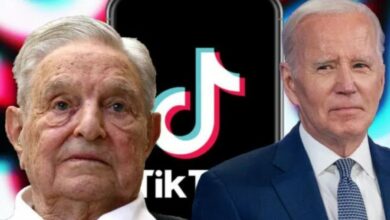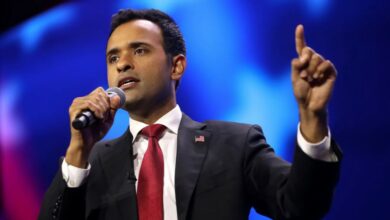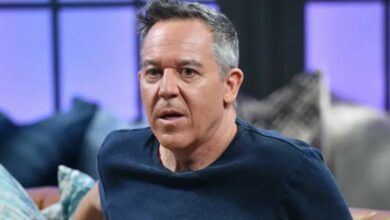20 years on, William Hung looks back on ‘American Idol’ audition with no regrets
“I feel that everyone has a right to try something new without being judged or ridiculed,” Hung, now 41, told NBC News.
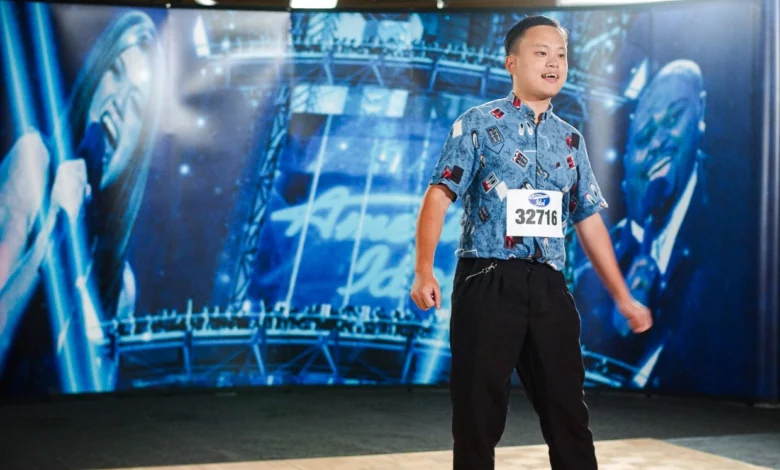
William Hung’s unforgettable appearance on reality singing competition “American Idol” catapulted him to early aughts fame, drawing as many trolls as there were fans. But two decades later, Hung says he still has no regrets.
Hung, who was 21 years old when his audition aired in January 2004, became one of the earliest viral sensations in recent history after his enthusiastic, yet off-key, rendition of Ricky Martin’s “She Bangs” stunned both the judges and American households. Hung, an immigrant from Hong Kong and one of the rare Asian faces on American TV, was an unlikely trailblazer on mainstream television. However, many mocked him for his appearance, accent and confidence. And some Asian Americans saw him as a source of shame.
With this year marking the 20th anniversary of his episode, Hung, now 41, said he’s reflecting on his time in the spotlight with immense pride in his composure while spreading his message.
“I feel that everyone has a right to try something new without being judged or ridiculed,” Hung said. “It’s OK for people to enjoy themselves.”
Much has changed for Hung. He struggled with a gambling addiction for a while, he said, which friends and family helped him overcome. These days, he’s married and working at the Los Angeles County Sheriff’s Department as a senior stats analyst. He’s still speaking and performing, and he makes occasional movie or television appearances, he said.
But two decades ago, a smiling Hung appeared on the third season of “American Idol,” dressed in a patterned button-down, with his hair parted to the side. In the episode, he enthusiastically steps in front of judges Simon Cowell, Paula Abdul and Randy Jackson.
“I’m here for the opportunity to sing to America,” Hung, then a college student at the University of California, Berkeley, tells the judges as they grill him. “I might not be the best singer around the world, but I know that I am singing from my heart.”
Hung dives into his a capella cover, dancing energetically as the panel dissolves into laughter and confusion. Cowell eventually calls the act “one of the worst auditions we’ve had this year.”
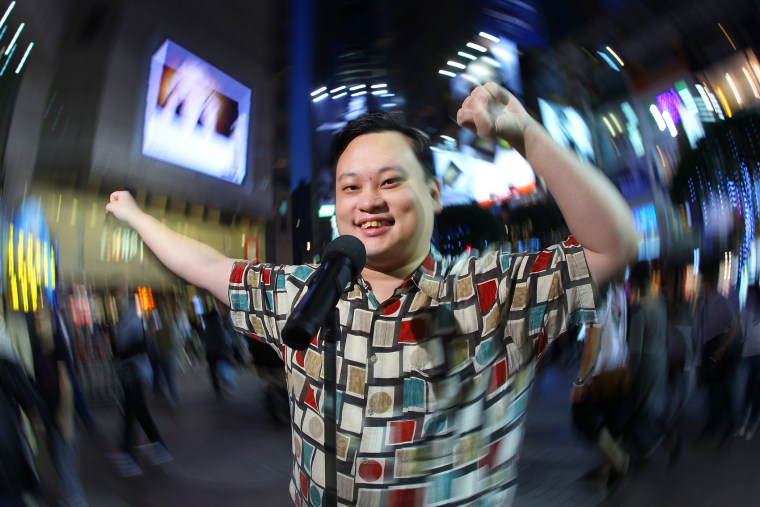
Though the entire segment only lasts a few minutes, it was enough to rocket him to stardom. “Saturday Night Live” parodied him. He made several appearances on talk shows and sports events. At one point, he was even given a record contract. But much of Hung’s popularity was at his expense. Media was littered with impressions of Hung that smacked of offensive caricatures of Asian Americans as nerds with heavily accented English and no style or game, experts said.
Though the public and media carried on as if Hung was oblivious to the sneers, he said he was aware of it all, but intent on tuning it out and focusing on the fans for a once-in-a-lifetime experience. Hung explained that the audition came during a time when he was struggling academically. After winning a campus talent show by singing his now-infamous Ricky Martin cover, he said he got the confidence to give “American Idol” a shot. Hung said he didn’t have high expectations and wasn’t bothered by the judges’ comments.
“Randy would hold this white sheet of paper to cover up his face as he kept laughing. I already knew that I probably wasn’t going to make it,” Hung remembers. “Paula was smiling. Simon was frowning. I kept singing and dancing. I felt like ‘It’s OK. I don’t want to be angry and upset like some of the other contestants.’”
When the episode aired in January of the following year, Hung said he secluded himself in his room, hoping to process the moment by himself. But life changed almost instantly, he said. While he had hoped to finish college, he left to chase the opportunities that were flooding in. For him, the exposure was a chance to stand tall in the face of critics.
Hung said he didn’t dwell on the role that race played in his reception. Looking back, he said, he understands the way his Asian background factored into the surrounding media coverage. He’s also understanding of the negative responses from some Asian Americans.
“There were not as many prominent Asian figures overall. I remember back then that there’s Jackie Chan, maybe Michelle Kwan, Lucy Liu … that’s a small list,” he said. “I have empathy towards the people who criticize me because it’s like, ‘Wow, here comes William Hung putting Asians on the wrong foot, the wrong side of this perception.’”
James Zarsadiaz, an associate professor of history at the University of San Francisco, said Hung had unintentionally reinforced all the cultural tropes of Asian Americans, while the audition ultimately revealed how most Americans still saw the group. Zarsadiaz added that rather than condemn the racist jeering, Asian Americans often blamed the contestant for the racism, likely in part because of their decadeslong fight against already problematic depictions.
“Some probably felt that he made them look bad,” he said. “They also embraced an assimilationist ideology around how people should behave in the American mainstream media.”
Anthony Ocampo, a sociology professor at California State Polytechnic University, Pomona, added that for Asian men in particular, the way Hung was emasculated triggered memories of some of their own experiences, being teased for their appearance. But, Ocampo said, few came to Hung’s defense. In fact, many Asian Americans joined in the teasing in an attempt to distance themselves from the same nerdy tropes tied to Hung and assert their own sense of belonging. Additionally, some others may have internalized the idea of immigrants as two-dimensional characters.
“They don’t realize that William Hung was a whole-ass person,” Ocampo said. “He’s a complicated person as anybody who had a story to tell that we just never really got to hear because we were so anchored on seeing him as a caricature. … Even Asian Americans weren’t willing to scratch below the surface.”
What Hung did on “American Idol” all those years ago, Ocampo said, was, in reality, quite admirable.
“Bottom line, he was someone who was fearless, unbothered, openly vulnerable, willing to try again and unconcerned with putting up a front,” Ocampo said.


